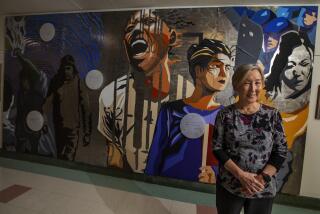Samuel P. Huntington dies at 81; author of ‘The Clash of Civilizations and the Remaking of World Order’
Samuel P. Huntington, a political scientist who argued that future conflicts would have their seeds in culture and religion rather than friction between nations, has died, Harvard University announced Saturday. He was 81.
Huntington died Wednesday at a nursing home on Martha’s Vineyard, Mass., where he had vacationed over the last 40 years, said Corydon Ireland, a Harvard spokesman. The cause was congestive heart failure and complications from diabetes, Ireland said.
Huntington retired from active teaching in 2007 after 58 years at Harvard. His research and teaching focused on American government, democratization, military politics, strategy and civil-military relations.
He was best known for his views on the clash of civilizations. He argued that in a post-Cold War world, violent conflict would come not from ideological friction between nation states, but from cultural and religious differences among the world’s major civilizations.
He identified those major civilizations as Western (including the United States and Europe), Latin American, Islamic, African, Orthodox (with Russia as a core state), Hindu, Japanese and “Sinic” (including China, Korea and Vietnam).
He made the argument in a 1993 article in the journal Foreign Affairs and then expanded the thesis into a book, “The Clash of Civilizations and the Remaking of World Order,” which appeared in 1996. The book has since been translated into more than 30 languages.
His focus on religion rather than ideology as a source of conflict triggered broad debate about relations between the Western and Islamic worlds, especially in the aftermath of the Sept. 11, 2001, attacks on the United States.
Some critics said his thesis was simplistic -- Middle East scholar Edward Said said it promoted the idea of “West versus the rest.”
But Huntington defended his idea, telling Islamica magazine in 2007, “My argument remains that cultural identities, antagonisms and affiliations will not only play a role, but play a major role in relations between states.”
Huntington’s 2004 book “Who Are We? The Challenges to America’s National Identity” also sparked heated debate by arguing that the massive influx of Mexican immigrants to the United States threatened traditional American identity and national unity.
“People all over the world studied and debated his ideas,” friend and Harvard Professor Emeritus Henry Rosovsky wrote on the Harvard website. “I believe that he was clearly one of the most influential political scientists of the last 50 years.”
In all, Huntington wrote 17 books including “The Soldier and the State: The Theory and Politics of Civil-Military Relations,” published in 1957 and inspired by President Harry Truman’s firing of Gen. Douglas MacArthur, and “Political Power: USA/USSR,” a study of Cold War dynamics and how the world could be shaped by two political philosophies locked in opposition, which he co-authored in 1964 with Zbigniew Brzezinski.
His 1968 book “Political Order in Changing Societies” analyzed political and economic development in the Third World.
Samuel Phillips Huntington was born April 18, 1927, in New York City, the son of Richard Huntington, an editor and publisher, and Dorothy Phillips, a writer. He received his bachelor’s degree from Yale in 1946, served in the U.S. Army, earned a master’s from the University of Chicago in 1948 and got a doctorate from Harvard in 1951. He taught at Harvard nearly without a break since 1950.
Huntington was the Albert J. Weatherhead III University Professor at Harvard, chaired Harvard’s government department twice and was director of the university’s Weatherhead Center for International Affairs between 1978 and 1989.
He also led the Harvard Academy for International and Area Studies from 1996 to 2004. He served as coordinator for security planning between 1977 and 1978 in President Jimmy Carter’s National Security Council.
Huntington is survived by his wife of 51 years, Nancy; sons Nicholas and Timothy; and four grandchildren.
A public memorial service is being planned for early next year at Harvard.
More to Read
Start your day right
Sign up for Essential California for the L.A. Times biggest news, features and recommendations in your inbox six days a week.
You may occasionally receive promotional content from the Los Angeles Times.






